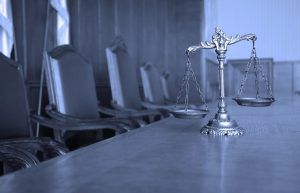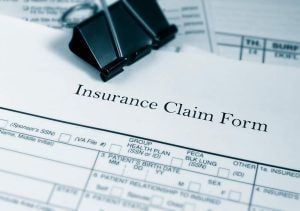No one looks forward to a call from their child’s school during the day.
All too often, these calls spell bad news, from a child’s illness to potential discipline for misbehavior. On a rare occasion, though, this kind of call can communicate that your child has been injured at school in some type of accident. If this has happened to your recently, then you know that it’s no understatement that your mind races after learning this news.
What Do I Do if My Child has an Accident at School
Hopefully, the school in question provides you with some reassurance regarding your child’s condition and the treatment they are receiving. But even if this is the case, you might rightfully fear for how your child has handled the injury and how they will recover going forward. All of these fears can be made even worse if you suspect that something could have been done to prevent your child from becoming so seriously injured.
In fact, you may have more than just a hunch regarding the true circumstances under which harm was brought to your child on school grounds. If so, then you may immediately want to jump into action and begin laying the blame on whoever you believe is accountable for this accident. But before you do that, there are other important steps you need to take in the wake of your child’s accident at school.
This guide will take you through these several steps so that you can efficiently move from the post-accident period to the recovery and potential litigation period without delay. This guide can also help you learn how to search for liability in this kind of case without randomly assigning blame. If you still need assistance beyond this guide, though, don’t hesitate to call Philly Injury Lawyer. Their team of seasoned accident lawyers has what it takes to reveal underlying liability and obtain proper compensation for your child’s injuries.
Keep Calm and Evaluate the Damages
In the wake of an accident at school, you have every right to be concerned about your child’s safety. That concern may bubble up in the moment and cause you to make decisions that will not benefit you or your child in the long-run. As such, it is essential that you remain as calm as possible after hearing the unfortunate news. This can help you remain focused on getting the help your child needs, both now and in the near future.
Once you have a sense of the situation, you need to focus in evaluating the damages. In other words, you should remain in contact with the school’s representative to find out what care your child is receiving and, if it requires off-site attention, where they are being cared for. If you feel it is warranted, you may choose to go there and be with your child immediately. Otherwise, you may continue to trust the school’s representatives with their care.
In either case, you should try to find out the extent of your child’s injuries as soon as possible. This may take some time if any type of tests, such as an X-ray, need to be run. Even so, you should listen to the trained medical professionals caring for your child and internalize their current prognosis. This can be important later on down the line if you decide litigation will be necessary.
However, this previous scenario assumes that your child’s school has taken their injury as a serious matter requiring immediate attention. If you feel that they are not taking this matter seriously in the moment, then you have every right that they seek out medical care for your child in your absence. Any delay in medical care on their part may lead to liability later on, not to mention the risk for further harm being done to your child.
Determine the Accident Cause
Once you have a grasp on your child’s injuries, you can begin to piece together the situation that lead to the preceding accident. You’ll almost certainly already know some of the details from the school’s representative, who may have explained the accident in brief when contacting you. However, this is an opportunity to fill in the gaps of information from those who witnessed it or were involved with it.
Naturally, your first instinct will be to talk with your child and ask, “what happened?” This can help establish any major events leading up to and following the accident from one of the affected individuals. If you feel it is necessary, write down or record your child’s experience during the accident, including any care they received from the school afterwards. This information may prove useful down the line.
However, while you have every right to trust your child’s recounting of the accident, you should also try to better illustrate their version of events with that of other individuals. As such, it would be worth your time to speak with other witnesses to the accident, if possible. You may even speak to a school official to understand how they handled the whole event. Be careful when speaking with the school, though, as any misstatement from you may make it harder to seek compensation later on.
Look for Liability (If Any)
Once you have the full story in front of you, you’ll need to determine if there is any liability on the school’s part. While you shouldn’t assume that this is the case, you also shouldn’t rule it out immediately. While a school’s actions may have been well-intentioned both before and after the accident, it does not mean that they shouldn’t be held to account for potentially contributing to your child’s injuries.
In many instances, the accident that lead to your child’s injury will have been just that – an accident. An accident cannot be blamed on any one party, making it more challenging to obtain compensation relating to its occurrence. This would be the case if the accident in question was considered “unavoidable,” even if full caution had been taken.
However, in the wake of an accident at school, liability can sometimes be swiftly identified. For example, if your child failed to follow reasonable rules or policies in the direct lead up to the accident, they may actually be found liable. However, if the school failed to provide a reasonably safe environment for your child, they could be held liable instead. This could also be the case if you discover that they did not properly or swiftly provide necessary medical attention in the wake of the accident.
At this stage, you are effectively preparing for potential litigation down the line. As a result, it’s a good opportunity to hire a personal injury lawyer to help you organize your findings. They can also provide you legal advice to avoid jeopardizing any emergent case you have against your child’s school. For example, they may warn you against signing any new waivers from the school that may effectively free them from their liability.
Plan for Future Action
Once you know the situation that caused your child’s accident as well as those responsible for its occurrence, you can begin to plan for future action. If you find that no liability can be applied or that your child was primarily responsible, then you may just need to focus on helping your child recover. Broad or hard-to-prove litigation may prove costly to you and your reputation in the long run, after all.
Indeed, a resolution without litigation is not the worst possible scenario. There’s only so much you can do to ensure future harm doesn’t come to your child in the end. Along those same lines, this type of resolution might warrant a meeting with your child’s school’s officials. At that time, you can ask and learn about what steps are being taken to prevent such an accident from occurring again.
However, if those same officials are unwilling to accept any form of responsibility or are unable to give you a quality assurance that an accident of that kind will not happen again, you may have just cause to follow through with litigation. In the long run, this may also be your best option for obtaining compensation from the school if they uncooperative with your efforts to learn the truth of the matter.
Finding a Path Forward
When you learn that your child has been injured in an accident at school, you may feel as if your world has come to a stop. But now that the moment has passed, it’s time for you and your family to find a viable path forward. That path may involve litigation, or it may simply require more care for your child while they recover from their injury.
Regardless of the path you feel is right for your family, you’ll be better able to make an informed decision with a skilled accident attorney at your side. That’s why you should contact Philly Injury Lawyer as soon as possible after your child is involved with an at-school accident. They can support you while your family works through this difficult time and provide you with plenty of options if you decide your child deserves monetary compensation.





